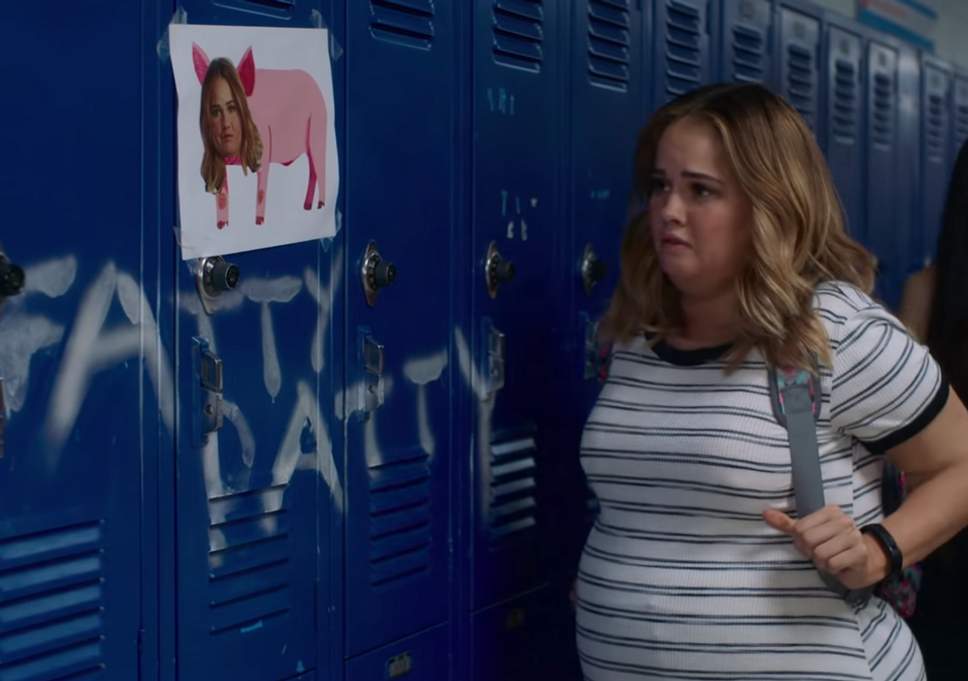Does ‘Insatiable’ promote fat shaming?
August 10th marks the release of a new Netflix original entitled Insatiable. The show, which dubs itself as ‘a coming of rage story’ follows the story of a ‘fat’ bullied teenager who turns to beauty pageants as a way to exact her revenge on her bullies after losing weight, having had her jaw wired shut over summer.
The trailer for this new show was released on July 19th and received backlash online surrounding issues of ‘fat shaming’, as well as a less-than-convincing fat-suit. The show features many big names, including Alyssa Milano, Dallas Roberts, and Debby Ryan who plays the lead character, Patty. The storyline of this show is the root of why it is so problematic; Patty, who refers to herself as a “former fatty” loses weight, becomes stereotypically attractive and seeks revenge on those who made her feel bad about herself. This show perpetuates the idea that people must lose weight to gain confidence.
Every single woman has faced in her life, sitting somewhere on the scale of valuing their worth on their bodies, to be desirable objects for the male gaze
The series’ apparent depiction of drastic enforced weight loss as a path to popularity and success sparked disappointment to such an extent, that a Change.org petition has been started and signed by almost 150,000 people, calling for Netflix to stop the release of the show. The petition states that “the toxicity of this series, is bigger than just this one particular series. This is not an isolated case, but part of a much larger problem that I can promise you every single woman has faced in her life, sitting somewhere on the scale of valuing their worth on their bodies, to be desirable objects for the male gaze.”
The cast of the show has jumped to its defence, however, with Milano commenting “we are not shaming Patty. We are addressing (through comedy) the damage that occurs from fat shaming”. Ryan turned to Twitter, releasing a statement in which she said that “as someone who cares deeply about the way our bodies, especially women’s, are shamed and policed in society, I was so excited to work on Insatiable because it’s a show that addresses and confronts those ideas through satire”. What is evident from the responses to the trailer, is that the satire and comedy that the cast speak of isn’t obvious. It appears that the take-home message from the trailer isn’t the damage caused by fat shaming, it’s that after losing weight, Patty becomes vengeful and power-crazy.
This show may have a particularly negative impact on those suffering from body image issues
It’s that message which is the problem with the show. Adam Cox, a clinical hypnotherapist who specialises in weight loss, explained to The Independent that this show may have a particularly negative impact on those suffering from body image issues. “The series seems to be entirely based around negative connotations to do with weight, which is inherently harmful to anyone who has struggled with body issues,” he says.
The creator of the show, Lauren Gussis asked the audience to “please give the show a chance”, after also defending Insatiable. Gussis explained to Teen Vogue: “I really felt like it was important to look at [bullying] head on and talk about it”, and while the show does talk about bullying, it also sees its protagonist become a bully herself and seek revenge on her peers. So, unfortunately, I won’t be giving it a chance – that is, if it even goes ahead with its release.

Comments (2)
“You saw a trailer & decided from it’s 90 seconds that the other 12 hours of the show aren’t worth watching. Explain to me how that is different than a person seeing an overweight person and deciding that getting to know them beyond their weight is not worth their time?”
Perhaps because that is exactly what trailers are designed to do? Judging a person based on their appearance is in no way the same as judging a TV show based on its trailer. A trailer is supposed to give you a feel for what the rest of the show is going to be like, so it seems perfectly reasonable to use it to decide whether you’re going to watch a show or not.
You saw a trailer & decided from it’s 90 seconds that the other 12 hours of the show aren’t worth watching. Explain to me how that is different than a person seeing an overweight person and deciding that getting to know them beyond their weight is not worth their time? If you don’t think the show is to your liking, taste wise, don’t watch. But to make claims that it is “one thing” without actually getting to know more about it than 90 seconds is very close minded and arrogant.